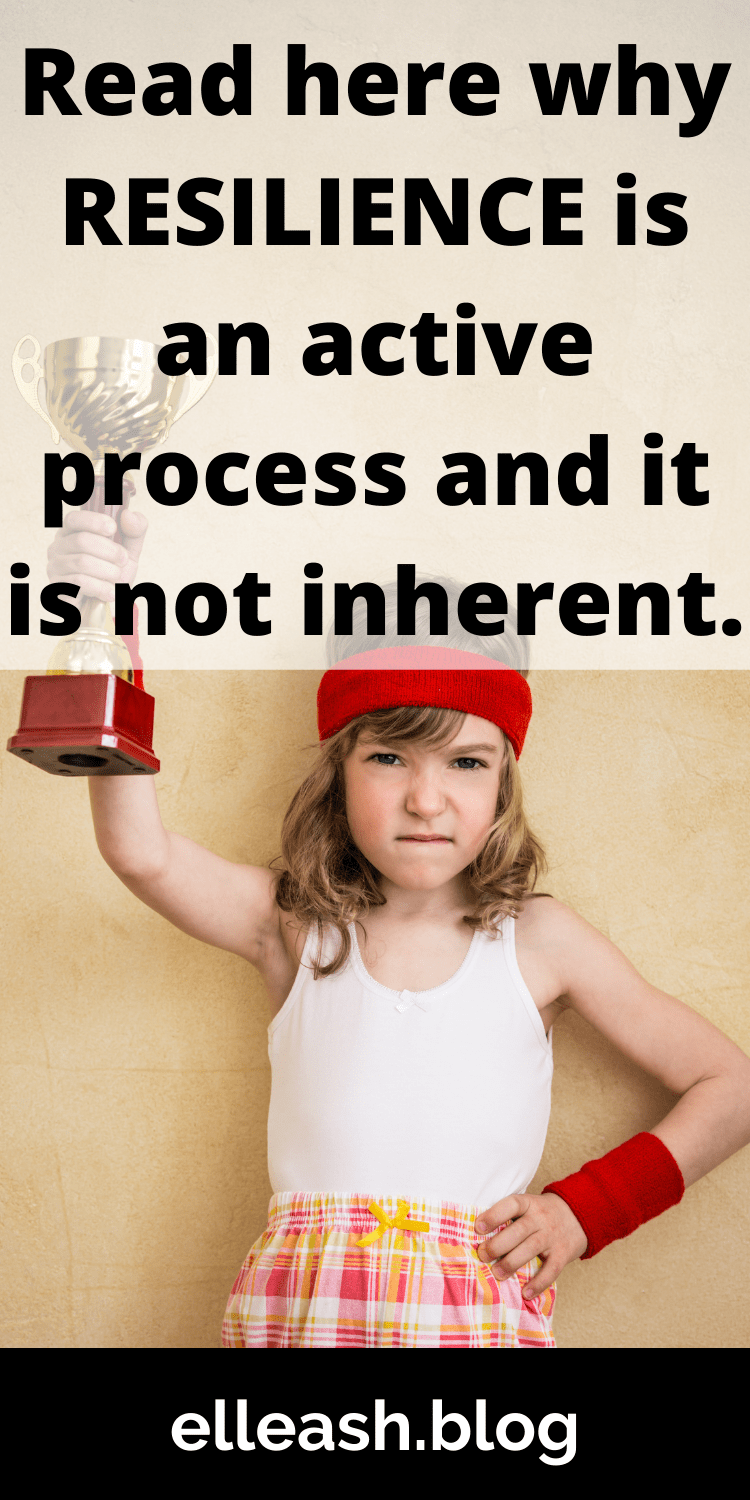This post may contain affiliate links. Please read the full disclosure here.
This piece will be tackling the topic of RESILIENCE. This is the second part of the article, which will deal with THE IMPORTANCE OF RESILIENCE.
I will however be going back over the term bouncing back and also giving you an insight into who I am a little more.
Last Updated on January 4, 2025 by ELLEASH
THIS IS AN ADVERTISEMENT
CONTINUE READING BELOW
First and foremost I do wish to state that I am by no means a qualified psychologist or mental health expert, and what I post is not to be taken to the T! What I write are my own experiences and when I quote phrases, there is always a source! The contents on my blog, such as text, graphics, images, and other material are for informational purposes only. The content is not intended to be a substitute for professional advice, diagnosis, or treatment. Always seek the advice of your mental health professional or other qualified health provider with any questions you may have regarding your condition. Never disregard professional advice or delay in seeking it because of something you have read on my page!
I repeat it here again, but it is also on my disclaimer page. I thought it was important to reiterate it.
RESILIENCE IS AN ACTIVE PROCESS
Hey hey my lovely entrepreneurs,
How are you doing today? I hope you are well and you are feeling strong, open-minded and positive!
Upon posting part 1 , it occured to me that I was not only missing some important, personal input, but also, I felt that I was quite succint regarding the term BOUNCING BACK.
So before, going into the importance of resilience, I would like to go back to the term bouncing back and introduce another term, MENTAL TOUGHNESS, that is also often interchangeable with RESILIENCE.
I would also like to give you a little bit of personal input, so you can better grasp the topic at hand.
Bouncing back & mental toughness
THIS IS AN ADVERTISEMENT
CONTINUE READING BELOW
The terms bouncing back and mental toughness could be interchangeable with resilience.
I feel that both these terms are truly the core essentials to learning about the tools, that can help you become the best version of yourself.
I know, there is just SO much to write about concerning this fascinating topic, that numerous researchers enjoy talking about too.
It has become a hot topic in Positive Psychology and I can understand why!
Anything that is going to make a positive impact on my life, I'm all for it now!!
I am totally open to new experiences and learning new things.
I have learnt that it is so much more beneficial to focus on the good than on the bad and whatever negative things that could happen, or not, to me.
Don't you think so? Superficially it is a true asset to be positive.
Yet, being too positive isn't that great! I wrote a piece on toxic positivity, that you can find here, if you are interested in, why being too positive isn't all that it is made out to be!
Now, back to the topic at hand ...
THIS IS AN ADVERTISEMENT
CONTINUE READING BELOW
Numerous similar concepts have also often been associated to resilience, such as the term MENTAL TOUGHNESS.
This term is also often used interchangeably with resilience.
However, you will see a little further down, how they are indeed synonymous, but not quite!
What is mental toughness?
According to Strycharczyk, mental toughness is,
Strycharczyk
a personality trait which determines in large part how individuals deal with stress, pressure and challenge irrespective of circumstances.
2015
MENTAL TOUGHNESS encompasses 2 character traits: boldness and confidence and it is these traits that allows us to take whatever comes in our stride, with a focus on what we can learn and gain from the experience.
THIS IS AN ADVERTISEMENT
CONTINUE READING BELOW
While the association with bouncing back is understandable, the manner in which the 2 terms differ, is that resilience is what helps people recover from a setback, but mental toughness can help people avoid experiencing a setback in the first place.
Strycharczyk
All mentally tough individuals are resilient, but not all resilient individuals are mentally tough.
2015
Individuals who are mentally tough really have the best of both worlds!
They are not only able to bounce back, they are more likely to see hardships as a challenge and just take whatever is thrown at them with a shrug and say "Bring it".
Obviously, this is not something that comes easily, nor naturally.
It is definitely nurtured and built upon through our life, via the right channels and people who can help add to our tool box.
I have experienced, like many of you, negative, difficult, and distressing events that life has thrown my way, but I have managed to stay on task, optimistic, and high-functioning.
So, you are probably thinking, umm okay, but that capacity to bounce back is like a super power, and there is no way I have it!
Well, think again - as this is where some of you may be surprised!!
THIS IS AN ADVERTISEMENT
CONTINUE READING BELOW
Resilience is actually very ordinary and not a concept, that only the most impressive, positive and awesome people have.
Just because you encounter people who are resilient, it definitely doesn't mean that they go through life without encountering their share of disappointments, adversities, and even tragedy.
They don't go through life, thinking that all is glittery and pink unicorns, and that whatever they encounter, won't hurt them.
THIS IS AN ADVERTISEMENT
CONTINUE READING BELOW
Developing resilience
In fact, developing resilience basically requires us to have something emotionally distressing happen to us.
If our life was just "easy" and we never ran into difficulties, we would never learn to grow and deal with them.
And we have all experienced something tragic, emotionally cathartic, psychologically unnerving; we have all been knocked down, had our heart broken and been thwarted … but we are still here today, stronger and more experienced!
Having a strong emotional scaffolding and a protective environment helps to nurture the tools needed to build-up our resilience to the life-experiences that are thrown at us!
THIS IS AN ADVERTISEMENT
CONTINUE READING BELOW
Life is hard – we all know that and it can be harder, or easier at times.
We all have our personal experiences, such as illness, loss of a loved one, abuse, bullying, job loss, and financial instability.
There are also adversities that we can share as a “group”, such as tragic events in the news, like terrorist attacks, mass shootings, natural disasters, and at the moment the Covid-19 virus.
We all have to learn to cope with, and work through, very challenging life experiences.
So, how is it that some people find it easier to overcome experiences than others?
Can we learn to “bounce back”?
If you remember, I mentioned that resilience isn’t like a yoyo, where you’ve got it one day and another day you don’t.
It takes time, strength and help from those around you and if you’re lucky from those closest to you and helping you build your life-blocks.
THIS IS AN ADVERTISEMENT
CONTINUE READING BELOW
Let's get a little personal
As I was growing up, like I have said before, I had quite an idealistic childhood, even my teenage years were darn good!
My family was extremely supportive in my choices and in whatever I undertook.
But, my Dad suffered from depression and throughout those formative years, I grew up to see the repercussions of his illness, but also to understand it.
THIS IS AN ADVERTISEMENT
CONTINUE READING BELOW
I knew that if my Dad was not with us at a family gathering there would be whispers behind my and Mom’s back, and that I would have to be extra-cheery for my Mom.
If I came home from school and that Dad was home from work, that meant that it had been a bad day for him, so I would try my upmost to cheer him up, or sometimes stay clear from his mood swings.
My Mom is a very positive and open-minded person, and she quickly made me understand that it was not my role to cheer my Dad up, or act a certain way around him, as not to trigger his moods.
She helped me navigate through through my Dad’s mental health, like a true ninja!
She supported my choices, my decisions, she taught me to be empathetic, she showed me that it was okay to feel emotions, and cry when things weren’t okay.
Yet she also taught me to not base my life on what may, or may not, please others.
Most importantly she gave me the tools to cope when in grueling situations!
Wise woman, my Mom.
THIS IS AN ADVERTISEMENT
CONTINUE READING BELOW
The point is, I was fortunate to be given the tools to become resilient and this is something that you can do too.
Like I stated previously, it takes time, but it can be done.
I didn’t know that I had these tools! I had actually NFI until a life altering moment occurred. ( Read part 3 to discover what it was, but finish this part first!!)
THIS IS AN ADVERTISEMENT
CONTINUE READING BELOW
Being resilient does not mean that I don’t experience stress, emotional upheaval, and suffering.
Some people equate resilience with mental toughness, but demonstrating resilience includes working through emotional pain and suffering.
It’s not all just black or white.
I may be resilient in certain aspects of my life and not be at all in others.
I’m walking in the grey more often than not, really!
But I learn everyday what my strengths are and how my tools can help me in or out of situations.
I really felt like this personal input was really important.
Not only so you can understand a little more about what it really means to be resilient, but also it gives you a small snippet on who I am, and why I am a strong advocate for mental health and why it is something I am extremely passionate and, dare I say, protective of!
THIS IS AN ADVERTISEMENT
CONTINUE READING BELOW
Why is resilience important?
Resilience is important because it gives us the strength needed to process and overcome what our micro and macro environment decides to throw at us.
By micro environment, I mean the people that we encounter everyday and that are close to us, even ourselves, and the macro environment is the news, people we know-of, but don't see often, people we hear about - pretty much all exterior factors that can still affect us.
For those lacking resilience, they can get easily overwhelmed, and may turn to unhealthy coping mechanisms.
Resilient people hone into their strengths and support systems to overcome the challenges and work through the problems.
As you read this, you may be feeling that you are not resilient or that you won't get out of the feelings overwhelming you everyday. That's okay. You do you and you take your time.
Like I said, resilience is something that we can learn, with the right support system, this is most definitely not unattainable.
You will get to that space where you are comfortable enough face adversities and come out stronger, healthier and ready to kick A!
I learned years ago (although sometimes it still feels new and I forget) how to hone into those processes to help me overcome many challenges throughout my young adult life, so I know exactly how some of you may be feeling right now.
Trust me, the toolbox is there and you have the manual - all you need is the right expert to show you how to utilize those tools
Slowly you will learn how to bounce back and become a beautiful phoenix.
Don't lose faith nor hope! You've go this!!
Never apologize for being an effing strong woman!
THIS IS AN ADVERTISEMENT
CONTINUE READING BELOW



